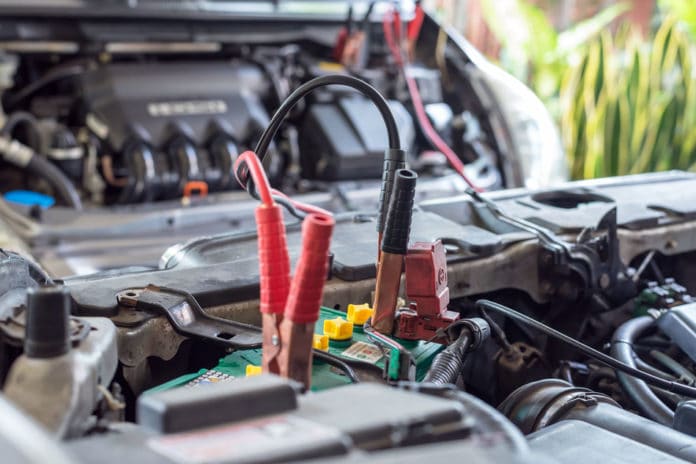
Are you curious about the lifespan of the battery of your vehicle? Knowing the answer to “How long does a car battery last?” is essential, as it will help you decide to charge or replace it in case of a dead-battery situation.
A battery is one of those components in a vehicle that you don’t generally think about much until something goes wrong. The electrical current required by the starter motor and the ignition system to crank the engine of a car is supplied by the battery. In case of insufficient power supply from the alternator, a battery also acts as an alternative power source.
While most car batteries have an extended lifespan, they last for about 3-5 years without any need for replacement or recharging. But even the high-quality ones run out of power with time. Sometimes their life is cut short just because of carelessness and weather conditions.
Temperature also affect the life of car batteries to a great extent; therefore, their lifespan varies with location. Let’s discuss the average lifespan of a car battery in different locations all around the world!
9 Places of the Average Car Battery Life Expectancy
1. Florida
According to reports, the average lifespan of a car battery in Florida is around 2-3 years, as compared to the average of 3-5 years that the batteries last in other colder states. Summers in Florida are very warm and prolonged and the winters are fairly mild.
Although cold weathers are usually held responsible when it comes to a dead or flat battery but surprisingly hot climates are equally to blame. Heat is known to shave off of the standard longevity of a car battery, therefore, reducing the battery life in the said state.
2. Texas
Vehicle batteries don’t well mix with the heat in Texas. According to Dennis Kubeczka, General Manager at Interstate Batteries, “The heat accelerates the deterioration of the inside of the battery.” Of course, as with every other state, one might be able to prolong the lifespan of the battery with proper maintenance and care.
On average, car batteries last about 4 years in Texas. According to experts, you should keep a check on the battery fluid levels. If they appear low, it is recommended that you pour little amounts of distilled water in the reservoirs to extend battery life.
3. Las Vegas
Before moving to a desert, you don’t think much about car batteries and their life. However, once you do, you get to learn a lesson pretty fast. Car batteries in the Las Vegas desert are known to survive for a time period of around 2 years.
According to Rich White, Executive Director of the Car Care Council, usually motorists tend to think that severe winter is the cause of dead batteries and their failure to start vehicles.
Little do they know that battery problems come into the picture long before the temperatures go down. He says that heat shortens battery life more than cold does.
4. Arizona
As with Las Vegas, Arizona is also known for its desert heat, which can again be particularly hard on batteries. Most batteries in Arizona are believed to last around 3 years but with the appropriate care, they are capable of functioning for up to 4 years.
In the capital of the southwestern U.S. state of Arizona, Phoenix, old batteries barely stand a chance in summers. They often die because of extreme heat, giving no prior warning at all.
5. Colorado
The quality of the battery plays a vital role in its lifespan. A cheap car battery would last for about 2 years whereas a car battery of the best quality can last up to 6 years in Colorado.
However, the average lifespan of a car battery in Colorado is four years. It will die for sure at some point, as the exterior layers of the battery cell plates worsen to the point the battery is incapable of providing sufficient charge.
6. Illinois
When you buy a car battery in Illinois, remember the fact that the colder is your engine, the more power it takes to turn over. Illinois’ cold weather causes the electrical efficiency of your battery to reduce, reducing the amount of energy present in the battery to crank the engine.
So while living in the said Midwestern state, you need to purchase a car battery with more cold cranking amps. A good-quality car battery in Illinois will last for about 4 years with proper maintenance.
7. California
As we’ve cleared out that batteries and heat don’t get along very well. Therefore, car batteries in warmer states wear out significantly faster than in locations with less extreme weather conditions.
If you purchase a cheaper car battery, it would last about 2 to 3 years in California. A car battery of high quality will last around 4 to 5 years in the said state.
8. Canada
Extreme cold weathers are brutal on vehicle batteries. When living in Canada, one is well aware of how the harsh winters can take a toll on their precious cars.
The average life of a car battery in Canada is around 4 to 5 years, provided you conduct regular checkups on it. It’s always best to keep a car battery in optimal condition to avoid getting stranded in the middle of a road with a dead one.
9. Australia
The lead-acid batteries last around 42 months on average in Australia. To get the maximum life out of your car battery, you should check it on a monthly or bi-monthly basis.
11 Factors that Can Affect Your Car Battery Lifespan
1. Cyclic Use
When a battery of any vehicle is being used regularly as a power source and it is being discharged and later recharged, it is said to be in cyclic use. The factor that determines the life of this car battery is the amount of charge/discharge cycles that it can complete.
Different types of batteries come with different numbers of use cycles. In simple words, the higher the number of use cycles, the longer the lifespan of your battery.
2. Power Consumption
A battery is responsible for powering the electronics of a car such as the AC, stereo, DVD, windshield wipers, etc. Every time you use any of these appliances, the battery power gets consumed.
The power consumption and depletion of a battery are directly proportional to the number of electronic gadgets you are using at a time. As the quantity of power drawn from the battery gets reduced, the life cycle keeps increasing.
Now to get a better understanding of the average lifetime of your battery, look at some factors that can have an impact on it.
3. Extreme Temperatures
This factor plays an import role in the performance of your battery. The optimum temperature for car batteries is known to be between 18°C and 32°C.
4. High Temperatures
Hot temperatures generally accelerate chemical activity, but they also increase the pace of corrosion within the cells and reduce battery life. Once the capacity of the car battery has been compromised by extreme heat, it cannot be restored.
5. Low Temperatures
Just as heat is known to quicken chemical processes, cold temperatures are known to slow them down and also thicken motor oil, making it difficult to turn over the engine. A cold car battery usually has reduced cranking power. That is why a battery can become inactive and flat in winters, even though its state of charge may remain unaltered.
6. An Overcharged Battery
The safest side-effect of an overcharged battery is that it dies. Of course, this is not the only thing that can go wrong. An overcharged battery can cause the distilled water and sulfuric acid mixture to boil, thereby causing the outer cover of the battery to melt or swell.
Other adverse reactions include building up of flammable hydrogen inside the sealed cells of your car battery, causing its outer layer to swell. As soon as the hydrogen meets oxygen, a time bomb is created.
Along with a completely damaged battery, there are chances of gas ignition and battery explosion triggered by something as minor as an electrical spark. This can result in the release of harmful elements and a destructive sulfuric acid spray.
7. Loose Battery
When you remove the car battery for maintenance, make sure to put it back again properly. If the battery of your car is loosened and not secured properly, and you drive it at that time, it will start causing vibrations and lead to battery failure.
It is necessary to keep a check on your battery; it should be balanced and fixed properly in its place to prevent failure and corrosion problems.
8. Covering Short Distances More Often
Believe it or not, covering short distances with your car can increase the chances of your battery getting damaged. Every time you start your car, a huge amount of electrical power is drawn from the battery.
Short drives can cause the acid stratification to gather in the lower area; therefore, the unavailability of acid in the upper part can lead to battery failure because of corrosion.
9. Turning the Headlights On Prior to the Engine
Often people are unaware of the fact that turning on the headlights before the engine is not good for their car battery. As soon as the car headlights are turned on before the ignition, more weight is added to the battery. Although it doesn’t always damage the battery, its lifespan gets cut short; this is even true for batteries of the highest quality.
10. Leaving the Air Conditioner and Lights on While the Car Is Sitting Idle
As mentioned above, the battery of your car is responsible for powering the electronics in it. When you leave the AC, lights, or any other electronic device in your car while it is sitting idle, it will cause the battery to run out eventually.
Therefore, the battery life will be cut short. It is highly recommended to switch off all electronic gadgets when you aren’t driving your car.
11. Letting the Car Sit Idle For Too Long
It is a well-known fact that if you leave your car parked for too long, it can have a great negative impact on its battery life. Modern cars are furnished with many clever features that continue to run even after you switch the engine off. Some of these features are remote control systems, anti-theft systems, and other several sensors.
Even though only a little battery energy is consumed by these intelligent features, the battery power gets drained gradually without being recharged when you let your car sit idle for too long; it eventually drains out. Therefore, it is recommended to use your car now and then to keep the battery life intact.
Although the average lifespan of a car battery is 3-5 years, you can’t be sure. Pay attention to your car and its battery and look for signs of aging to know exactly where you stand.
Conclusion
Mostly, the car batteries come with a 24, 30, and 40-month warranty. Purchase a good-quality battery for your car with a prolonged warranty period so that even if you run into some problems, you can get it serviced by the manufacturer during the warranty period.





